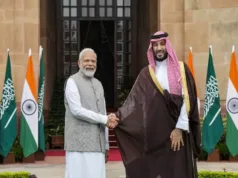

New Delhi: China’s ruling Communist Party has proposed scrapping the ten-year term limit for the President which would allow Xi Jinping to stay in power indefinitely. The proposal is likely to be passed by Parliament in early March.
This change would allow the 64-year-old to continue as both the head of state and the more senior title of Communist Party General Secretary beyond 2023.
Xi is also the Chairman of China’s Central Military Commission — a title, like that of Communist Party chief, that does not have a term limit.
According to China’s state media, the Communist Party’s main leadership group — the Central Committee — proposed the amendment, along with writing Mr Xi’s ideology into the country’s constitution.
Given that the Communist Party allows no opposition parties and suppresses dissenting political voices, the proposal is expected to be passed by China’s rubber-stamp Parliament in early March.
As party secretary general since 2012, Xi has waged a war against corruption and oversaw the establishment of a new anti-graft agency, the National Supervisory Commission that carries out investigations at all levels of government and includes non-party members.
Noted Indian economist Kaushik Basu tweeted, “China’s decision today to amend its constitution to remove term limit, thereby allowing Xi Jinping to stay in power indefinitely may well be the most important decision of our times, with implications for not just China, but the world, for decades to come.”
Xi cemented his status as the most powerful Chinese leader since Mao at last year’s CCP National Congress, where his name and a political theory attributed to him were added to the party constitution as he was given a second five-year term as general secretary.
According to an op-ed by Keyu Jin in Project Syndicate, “Xi knows that if China is to continue to thrive in a fast-changing world, he will need to manage deftly a major social and economic transformation, while, even more important, improving state governance. And, in order to secure the long-term survival of China’s one-party system, he must reform state and Party institutions; indeed, political reform is, for Xi, a prerequisite for economic reform. (And yet, he will carefully avoid what he considers the mistakes of the last Soviet president, Mikhail Gorbachev.)”
Chinese media outlets are referencing to Xi as “lingxiu” — a term only used to refer to Mao as it has reverential and spiritual connotations than any other word to signify leader.
“Especially in the period from 2020 to 2035 — which is a crucial stage for China to basically realise socialist modernisation — China and the CPC need a stable, strong and consistent leadership,” a professor from the Communist Party School, Su Wei, was quoted by the Global Times, a Communist Party media platform.
The same publication said in an editorial the constitutional change “doesn’t mean that the Chinese president will have a lifelong tenure”.








